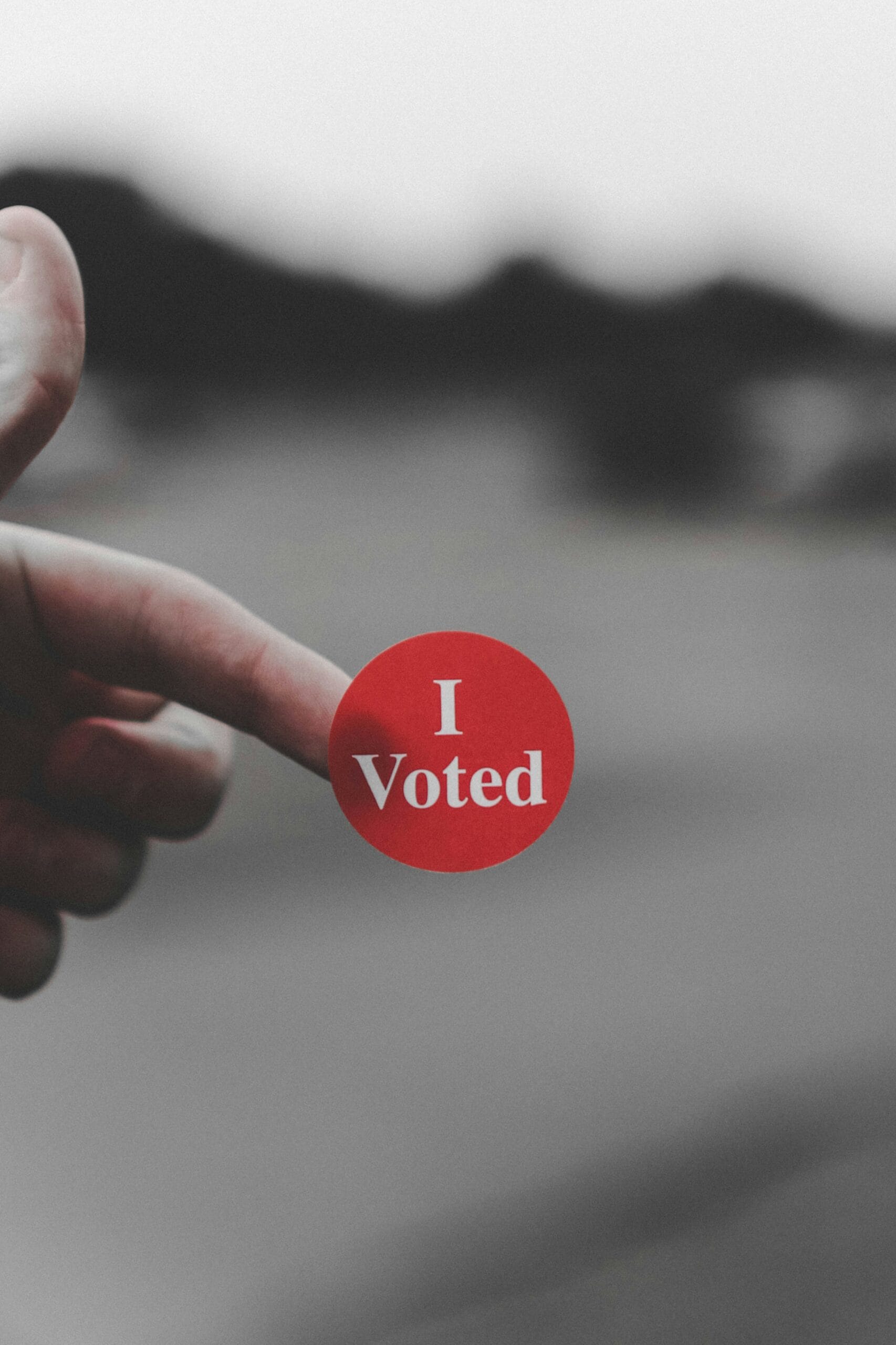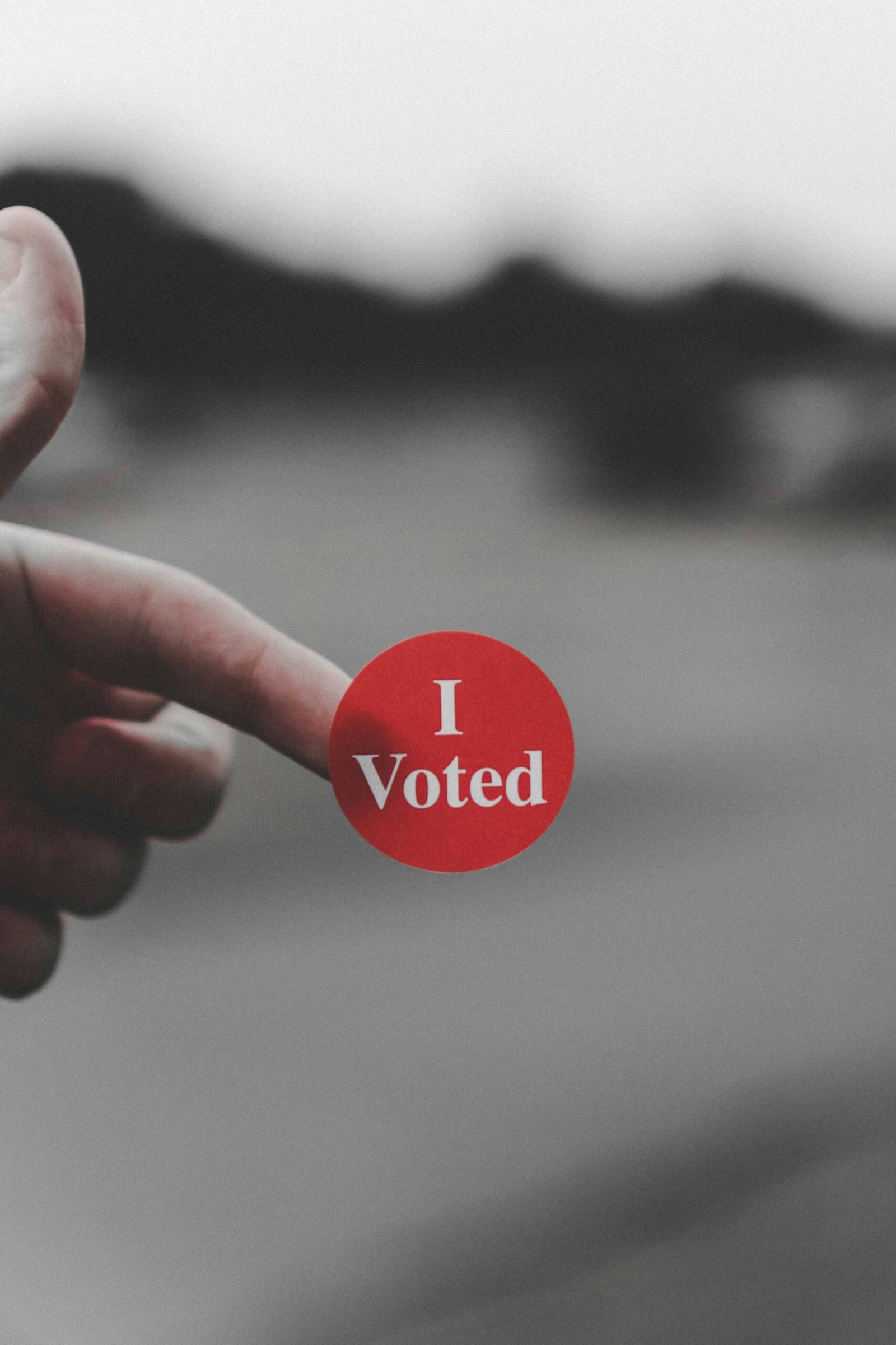
Introduction to Libertarianism
Libertarianism is a political philosophy that emphasizes individual liberty, personal responsibility, and minimal government intervention in both personal and economic matters. As a distinct ideology, libertarianism advocates for the protection of civil liberties, private property rights, and free-market principles. Central to libertarian thought is the belief that individuals are best equipped to make decisions regarding their own lives without excessive interference from the state. This belief grounds libertarians firmly in the conviction that personal freedom should be afforded to all, devoid of coercion or restriction from social or governmental entities.
Historically, the term ‘libertarian’ emerged in the 18th century but gained prominence during the 20th century amidst rising debates around individual rights and government power. The evolution of the concept reflects a growing discontent with both liberal and conservative ideologies, as proponents argued that neither accurately represented the core tenets of freedom that they valued. Consequently, libertarians are often seen as occupying a unique space on the political spectrum, characterized by a rejection of authoritarianism from both ends. This nonconformity has resulted in the perception that libertarians cannot be classified strictly as ‘left’ or ‘right’. Instead, many argue that their focus on individual autonomy and minimal state presence creates a distinct third position.
More informationUnderstanding Libertarianism in Government: Principles and IdeologiesThe appeal of libertarianism lies in its commitment to personal freedom and economic liberty, resonating with individuals who prioritize autonomy over collectivist ideals. As political discourse evolves, the relevance of libertarian principles continues to emerge in contemporary discussions about the role of government and individual rights, raising important questions about the balance between liberty and regulation. Understanding these foundational aspects of libertarianism is essential for navigating its complex relationship with the current political landscape.
The Political Spectrum Explained
The political spectrum is traditionally represented as a linear continuum ranging from left to right, with leftist ideologies often associated with progressivism, socialism, and collectivism, while rightist ideologies encompass conservatism, libertarianism, and capitalism. Leftist positions generally advocate for social equality and government intervention in economic affairs, believing that such measures are necessary to address societal disparities. In contrast, rightist positions tend to emphasize individual liberties, personal responsibility, and limited government, advocating for free market principles and minimal state intervention.
However, the dichotomy between left and right has limitations when it comes to capturing the diverse range of political beliefs, particularly libertarianism. Libertarians, who typically occupy a unique position within the political landscape, champion both civil liberties and economic freedom. This dual focus creates a challenge for traditional interpretations of the political spectrum, which often fail to account for these nuances. Libertarians advocate for minimal government intervention in both personal and economic matters, thus diverging from both leftist and rightist extremes.
More informationExploring Libertarianism: Understanding the Differences and BeliefsTo better understand this complexity, it’s beneficial to consider a two-dimensional political model, in which the left-right axis represents economic ideologies, while another axis may focus on personal liberties. This allows for a more comprehensive classification of political philosophies, recognizing that individuals may not strictly align with left or right positions. For instance, some individuals may support leftist economic policies while simultaneously advocating for right-leaning social policies, highlighting the inadequacy of a binary framework. This reevaluation not only broadens our understanding of various political orientations but also positions libertarianism as an ideologically distinct movement that cannot be neatly categorized within traditional confines.
Libertarianism vs. Anarchism
Libertarianism and anarchism are often viewed through a lens of overlap and divergence, as both ideologies fundamentally prioritize individual freedom and skepticism of government authority. Historically, libertarianism was frequently associated with anarchism, particularly during the late 19th and early 20th centuries when several thinkers and activists embraced both ideologies. However, as the understanding of these frameworks evolved, significant distinctions emerged that set them apart.
At their core, both libertarianism and anarchism emphasize the importance of personal liberties, the value of voluntary associations, and the idea that coercion is illegitimate. Nevertheless, the primary divergence lies in their stances on the role of property and the state. Anarchism, especially in its broader forms, advocates for a complete abolition of the state, positing that any form of hierarchical authority is inherently oppressive. In contrast, libertarianism is more nuanced, with factions advocating for minimal government intervention, rather than an outright rejection of the state.
More informationSteve Bannon News: Latest Updates and AnalysisOne particularly relevant distinction is found within the subcategory known as anarcho-capitalism, which blends libertarian principles with anarchist philosophies. Anarcho-capitalists argue for a stateless society where private property rights are paramount, and all services—including law and defense—are provided through voluntary, market-based exchanges. This perspective starkly contrasts with more traditional anarchist traditions, such as anarcho-communism, which seek to eliminate private property altogether, aiming instead for communal ownership and egalitarian principles.
Consequently, while libertarianism and anarchism share common ground in their opposition to coercive authority, their differing views on state structures and property rights reveal critical philosophical rifts, pointing to a rich tapestry of thought within the broader dialogue on freedom. Understanding these nuances provides deeper insights into the relationship between these political strands and their implications for modern governance and society.
Core Beliefs of Libertarians
Libertarianism is founded on the principle of individual freedom, advocating that individuals have the right to control their own lives and make choices regarding their personal interests. This emphasis on personal liberty forms the cornerstone of libertarian ideology, positing that each individual is best equipped to determine their own path, free from coercive interference.
More informationTrump in California Today: Key Moments and UpdatesOne of the defining beliefs among libertarians is the call for a limited government. Libertarians argue that government should exist primarily to protect individual rights rather than to impose restrictions or dictate the terms of personal decision-making. This stance is rooted in the view that government interventions often lead to inefficiencies and encroachments on personal liberties. Therefore, a libertarian government would focus on maintaining a legal framework to uphold rights, rather than exerting control over various aspects of life.
Free markets represent another central tenet of libertarian philosophy. The belief in voluntary exchange is predicated on the idea that capitalism fosters innovation and prosperity. Libertarians argue that when individuals are free to engage in commerce without undue regulation or interference, the economy flourishes, leading to increased opportunity and well-being for all. The libertarian viewpoint essentially promotes the idea that market forces should dictate economic interactions, rather than government dictates.
Civil liberties are also paramount in libertarian thought. This includes the right to free speech, freedom of assembly, and the protection of privacy rights. Libertarians are staunch advocates for civil liberties, believing that these rights are essential for a free society. Moreover, they reject government intervention in personal affairs, asserting that individuals should have autonomy over their own choices without state interference, so long as they do not infringe upon the rights of others.
More informationWhy Are Libertarians Controversial?Overall, these core beliefs reflect a unique blend of prioritizing individualism, advocating for limited government, endorsing free market principles, and defending civil liberties—all of which distinguish libertarian ideology in the broader political spectrum.
Libertarians and Economic Principles
Libertarians maintain a distinct stance on economic principles, advocating for a free-market system that prioritizes individual liberty and personal responsibility. At the core of libertarian economic thought lies the belief that voluntary exchanges in a competitive marketplace foster innovation, efficiency, and overall prosperity. In this context, capitalism is not merely a favored economic system; it is considered essential to maximizing individual freedom and minimizing coercion, particularly from governmental bodies.
Taxation is another significant aspect of libertarian economic principles. Libertarians generally argue that taxation is a form of coercion which infringes on individual liberties. They contend that the government’s role should be restricted to protecting life, liberty, and property, asserting that individuals should retain the fruits of their labor. Consequently, many libertarians advocate for drastically reduced tax rates or the abolition of income taxes altogether, believing that a lower tax burden enables people to make better financial decisions for themselves and their families.
Regarding public welfare, libertarians are critical of state-run programs, perceiving them as ineffective and prone to fostering dependency among citizens rather than encouraging self-sufficiency. They argue that these entitlement programs often disincentivize work and contribute to a culture of reliance on government assistance. Instead, libertarians support private charity and community-based solutions, suggesting that non-profit organizations and individuals in a free market would provide a more efficient and compassionate response to social welfare needs.
In conclusion, the libertarian perspective on economics is characterized by a strong commitment to free-market principles, opposition to high taxation, and skepticism towards government intervention in welfare programs. This focus on personal responsibility and market-driven solutions underscores the broader philosophical foundation of the libertarian ideology. While their ideas may align with aspects of both the left and right, their unique position on economic principles clearly distinguishes them within the political spectrum.
Are Libertarians Left-Wing or Right-Wing?
The classification of libertarians on the political spectrum has long been a topic of debate among scholars, political analysts, and the general public. Libertarianism, which emphasizes individual freedom, limited government, and free markets, often contains elements that can align it with both left-wing and right-wing ideologies. Historically, the roots of libertarian thought can be traced back to classical liberalism, which advocated for personal liberties and minimal state intervention, characteristics that resonate with left-leaning politics.
Proponents of the idea that libertarians belong on the left contend that issues such as civil liberties, social justice, and opposition to military intervention align closely with leftist ideologies. For instance, the libertarian commitment to personal autonomy allows for a gradual acceptance of progressive social policies, including drug decriminalization, marriage equality, and criminal justice reform. Some historical libertarian figures, such as Henry David Thoreau, emphasized nonconformity and individualism, traits that find kinship within leftist movements.
Conversely, others assert that libertarians are fundamentally aligned with the right, particularly concerning their economic policies. Libertarians advocate for free-market capitalism, opposing extensive state regulation and high taxation, which are standard positions of right-leaning individuals. The emphasis on personal responsibility and self-reliance is often mirrored in conservative thought, making a case for what many consider a right-wing stance.
Furthermore, the contemporary libertarian party has effectively blended these viewpoints, appealing to both leftists and conservatives. They champion non-interventionist foreign policy and civil liberties while staunchly defending free enterprise. This unique positioning complicates straightforward categorization, illustrating that libertarianism may be on a spectrum of its own, transcending traditional left-right divisions. Ultimately, the attempt to label libertarians as either left or right is an oversimplification of a complex ideological framework.
Misconceptions About Libertarianism
Libertarianism is often misrepresented in popular discourse, leading to confusion regarding its true principles and positions. One prevalent misconception is that all libertarians are anarchists who oppose any form of government. While it is accurate that some libertarians advocate for minimal government, many still recognize the necessity of a state, albeit one that is limited in its functions. This acknowledgment stems from the belief that a government should primarily focus on protecting individual rights, enforcing contracts, and providing for national defense.
Another common misunderstanding is that libertarians are inherently anti-government. Rather, libertarians advocate for a government that is constitutionally restrained, one that respects personal freedoms and property rights. They argue that a government should exist to serve its citizens rather than control them. This belief does not equate to a rejection of all governmental roles but rather to a call for a more efficient and limited approach to governance. It is crucial to note that libertarians prioritize individual liberty, which they believe should not be infringed upon by an overreaching government.
Additionally, there are misconceptions about the libertarian stance on social issues. Some assume that a focus on economic freedoms translates to a disregard for social justice or civil rights. In reality, many libertarians advocate for social policies that promote personal freedom and equality, arguing that individuals should have the autonomy to make choices about their lives as long as those choices do not harm others. This reflects a broader understanding of liberty that encompasses both economic and social dimensions.
In light of these misconceptions, it is essential to engage in open dialogue to better understand the nuanced perspectives libertarians hold regarding the balance between individual rights and government authority.
The Modern Libertarian Movement
The modern libertarian movement in the United States has gained considerable traction over recent decades, characterized by its strong emphasis on individual liberty, personal responsibility, and minimal government intervention. Central to this movement is the Libertarian Party, founded in 1971, which advocates for a distinctive political philosophy that prioritizes civil liberties and free markets. It stands as the largest third party in the country and has played a pivotal role in shaping discussions around government policy and personal freedom.
Prominent figures within the contemporary libertarian movement, such as Ron Paul and Gary Johnson, have further popularized libertarian ideals. Ron Paul, who has notably run for President, has utilized his platform to introduce libertarian concepts around fiscal responsibility and non-interventionist foreign policy to a wider audience. Gary Johnson, on the other hand, served as the Libertarian Party’s candidate in 2012 and 2016, bringing attention to issues such as drug decriminalization, criminal justice reform, and reducing the national debt, echoing the libertarian philosophy.
The influence of the modern libertarian movement extends beyond the Libertarian Party. A growing base of libertarian ideas has infiltrated mainstream political debate, attracting individuals across the political spectrum who resonate with its core tenets. Libertarians have been instrumental in discussions surrounding topics such as personal privacy, taxation, and regulation of the economy. The advent of social media and online platforms has facilitated the dissemination of libertarian ideas, allowing for greater outreach and engagement with diverse populations.
Ultimately, the modern libertarian movement continues to play a significant role in American politics by advocating for a reduction in government power while promoting individual freedoms. As the political landscape evolves, it remains to be seen how libertarians will navigate ongoing debates and influence future policies. Their commitment to liberty and minimalism presents both challenges and opportunities in the ever-changing realm of American governance.
Conclusion: Libertarianism’s Unique Position
In analyzing the complexities of the libertarian position on the political spectrum, it becomes evident that libertarianism cannot be simply categorized as either left or right. Instead, it represents a distinctive ideology emphasizing individual liberty and limited government intervention. Historically, libertarians have straddled the political divide, advocating for personal freedom, economic autonomy, and minimal state involvement in both personal and financial matters. These principles place them in contrast with the mainstream advocacy found on both ends of the political spectrum.
Libertarians prioritize the rights of the individual, advocating for personal responsibility and voluntary associations. This focus on individual choices often finds common ground with leftist perspectives on social freedoms, such as marriage equality and drug decriminalization. Conversely, libertarian economic principles align closely with right-leaning ideologies that promote free markets and reduced taxation. Thus, libertarianism draws elements from both the left and right, creating a unique synthesis that emphasizes limited government rather than adhering strictly to either side.
Furthermore, the implications of this unique position merit further consideration. The libertarian commitment to personal autonomy and civil liberties encourages discourse around the role of government in the lives of individuals. As society grapples with issues such as surveillance, regulation, and social justice, the libertarian approach provides alternative solutions that underscore the importance of consent and personal choice.
Ultimately, understanding libertarianism as a separate category within the political spectrum fosters a deeper appreciation for the diverse viewpoints on governance and individual rights. By recognizing this distinct ideology, individuals can better engage in discussions about the future of governance and the role that liberty should play in shaping public policy.
- Trump’s tariffs in brief: universal levies and targeted retaliation
- Tariffs Rip Through Global Markets as China, Europe Vow Retribution
- Starmer warns of ‘economic impact’ after Trump talks fail to avert tariffs
- Stock Movers: Pandora, AP Moller, Hapag-Lloyd (Podcast)
- Stock Movers: Pandora, AP Moller, Hapag-Lloyd (Podcast)









